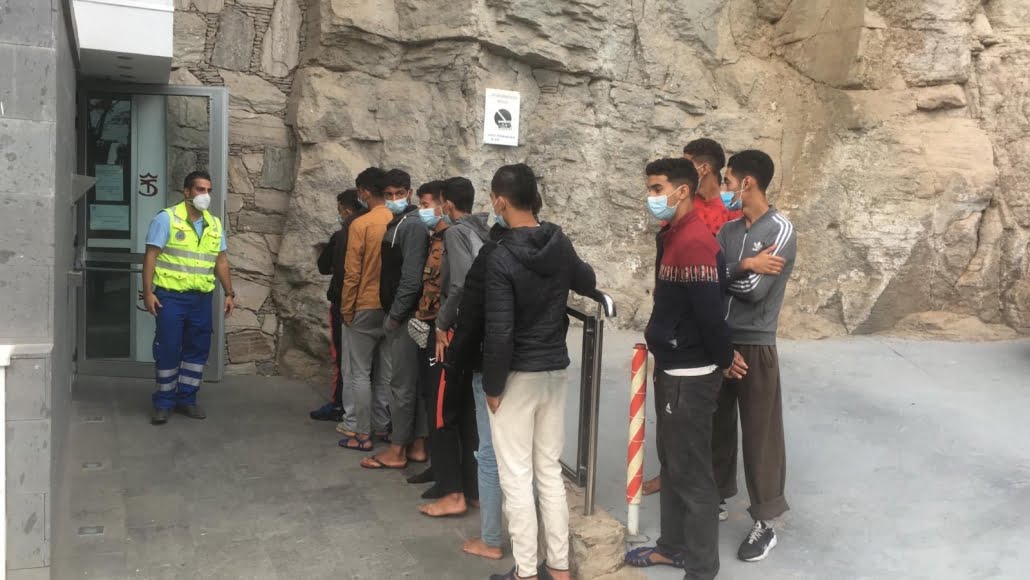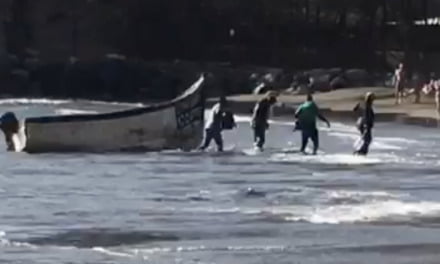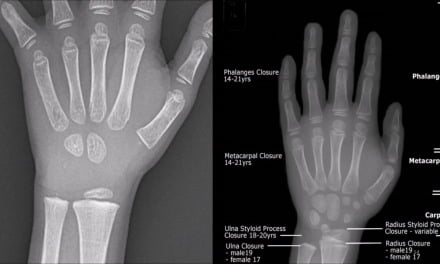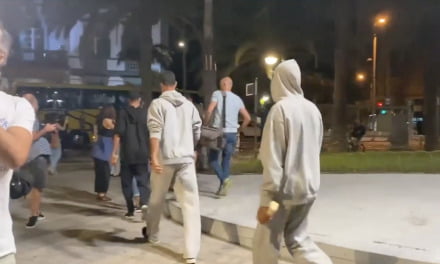The Deputy Minister of Social Rights of the Government of the Canary Islands, Gemma Martínez, said back in January that the archipelago is “clearly facing an humanitarian emergency situation” in the care of unaccompanied foreign minors, she appealed to all the administrations to take responsibility, as well as to the Government of Spain and the European Union (EU), during a meeting held with the representatives of the seven island Cabildos focused on addressing and specifying measures to care for unaccompanied migrant minors.
Martínez recognised then that the Canary Islands “are making an enormous effort” in the face of a “humanitarian drama” and met with representatives of the central government and the other autonomous communities to organise the referral of unaccompanied foreign minors, under the tutelage of the regional Executive, to transfer them to the Peninsula.
The central government at that time had transferred a budget of €10 million to the Canary Islands to care for these minors, however they stipulated that it would be “necessary for the EU to realise that the Canary Islands archipelago is the southern-most border of Europe and as such cannot just be left alone” to deal with the large numbers in their care.
EU Commissioner
 Martínez met with the European Commissioner for the Interior, Ylva Johansson, and her department to communicate to the EU that foreign minors, who arrive in the archipelago on peteras and cayucos, “cannot remain the exclusive responsibility of this autonomous community, but of all of Europe.”
Martínez met with the European Commissioner for the Interior, Ylva Johansson, and her department to communicate to the EU that foreign minors, who arrive in the archipelago on peteras and cayucos, “cannot remain the exclusive responsibility of this autonomous community, but of all of Europe.”
She pointed out that migratory flows “will continue in the coming months and this makes it more necessary than ever” to organise to have a “more fluid” system of transfer to the Peninsula and of obtaining European funds to finance these resources for the reception of these youths by Island Cabildos and the Government of the Canary Islands.
At the time she also pointed out that in the month of January 2020 the Canary Islands were caring for a total of 540 unaccompanied foreign minors, and just a year later the figure had reached 2,656 minors, an increase of 367%.
26 emergency facilities for the care of minors
The Ministry for Social Rights of the Government of the Canary Islands, headed up by Noemí Santana, has had to establish 26 emergency resource facilities for the care of minors, 16 of which have been on Gran Canaria, eight on Tenerife and two on Fuerteventura.
In total, up to the end of January 2021, the islands already had in their care 2,656 unaccompanied minors, Gran Canaria had 1,697; Tenerife 653; Lanzarote 151; Fuerteventura 69; La Palma 30; La Gomera 10; and El Hierro, 46. The current total, according to The Canary Islands Government Spokesperson, Julio Perez, now stands at 2,561, just 95 fewer than 3 months ago, a surprising enough figure even if you include the 101 who have travelled to the mainland and the approximately 90 or so individuals who were found to be adults pretending to by minors. There have been NGOs who have estimated a much higher number of minors may actually be in the system, who may have arrived and been erroneously placed in adult camps.
Canary Islands Governments currently care for 2,561 Menores Extranjeros No Acompañados (MENAs) Unaccompanied Minors
Spokesperson and Canary Islands Government Minister of Public Administrations, Justice and Security, Julio Pérez, demanded, last Wednesday, a new law to ensure the fair distribution of unaccompanied migrant minors throughout Spain.
 Pérez, appearing at a regional parliamentary commission to discuss the government response to this migratory phenomenon, detailed that in the Canary Islands there are 2,561 minors who have arrived on the islands by patera and only 101 have been referred to the Peninsula. He listed the numbers accepted by other regional executives throughout Spain: 18 have gone to Castilla y León, 25 to Extremadura, 15 to Navarra and 43 to Catalonia.
Pérez, appearing at a regional parliamentary commission to discuss the government response to this migratory phenomenon, detailed that in the Canary Islands there are 2,561 minors who have arrived on the islands by patera and only 101 have been referred to the Peninsula. He listed the numbers accepted by other regional executives throughout Spain: 18 have gone to Castilla y León, 25 to Extremadura, 15 to Navarra and 43 to Catalonia.
“This is solidarity” when the Canary Islands have asked for help, lamented the Minister, who said that these figures “are not valid”, because each community just requesting the number they want clearly does not work, but rather, in his view, a law is required that forces their distribution more equitably.
It does not “make sense”, he said, for the Canary Islands to host 2,561 children while it is simply “good will or solidarity” that compels other communities to join in the care of unaccompanied minors who have arrived on the islands by boat.
Pérez insisted on the importance of a law that establishes the distribution of unaccompanied minors based on several factors including population and resources, and not solely on their proximity to the border.
“The Autonomous Community of the Canary Islands [should] not have to care for all the children who arrive” Pérez said, and admitted that little progress has been made in this regard.
He emphasised that the European Union says that there must be mandatory co-responsibility and he defended the importance of this law to escape perpetuating some new version of colonialism, that has gone from exploiting to locking up migrants.
In his opinion, “emigration is a consequence of injustice and is a global phenomenon”, saying that the Canary Islands feel a legal and political responsibility, even though it is not their exclusive competence.
He has also requested that the European Union put Frontex patrol boats off the coast of West Africa, extending their usual zone of operation beyond the frontier coastal waters, to help, in his words, African countries to escape underdevelopment without appearing paternalistic, and was critical of this having been done with Morocco in an effort to promote better border security and development programs to halt migratory flows.
Importantly, he said he fully supports regular migration, saying that over the last year 23,608 immigrants arrived to the islands, and as of May 4, 4,885 people had arrived just this year.
According to Pérez, a total of just 3,328 irregular migrants remain on the islands, which means, he said, that “the others have left”, based on data from the Spanish Government Delegation in the Canary Islands.
Members of the regional parliament, from the various parties, wanted to add their voice to the search for solutions:
CC-PNC deputy Jana González, who had requested that Pérez appear in parliament, indicated that the Canary Islands can cope “no longer” and demanded the distribution of migrants throughout the national territory and, specifically, of minors to give them good social and educational care.
The PP deputy, Luz Reverón, denounced the inability of the Canary Islands and Spanish governments to articulate effective measures to put an end to the deaths at sea, while lamenting that there are young Africans wandering the streets without hope and without solutions within the Canary Islands, referring to the archipelago as de facto “prison islands”.
The Ciudadanos Deputy Ricardo Fernández de la Puente called attention to the fact that the rights of migrants are repeatedly violated in the Canary Islands, which has become a place for the “deprivation of rights” and where they have recorded “unacceptable numbers of deaths.”
The deputy for Sí Podemos Canarias, Francisco Déniz, said that migrants arriving by boat are experiencing “a real calamity and a human misfortune”, in the face of which the Canary Islands Government has done “everything in its power” and blamed the European Union for turning the islands into prisons for migrants.
The deputy for Nueva Canarias, Luis Campos, said he is in favour of a “clear, strong and forceful” migration policy in which it is “essential” that Government of the Canary Islands participate.










